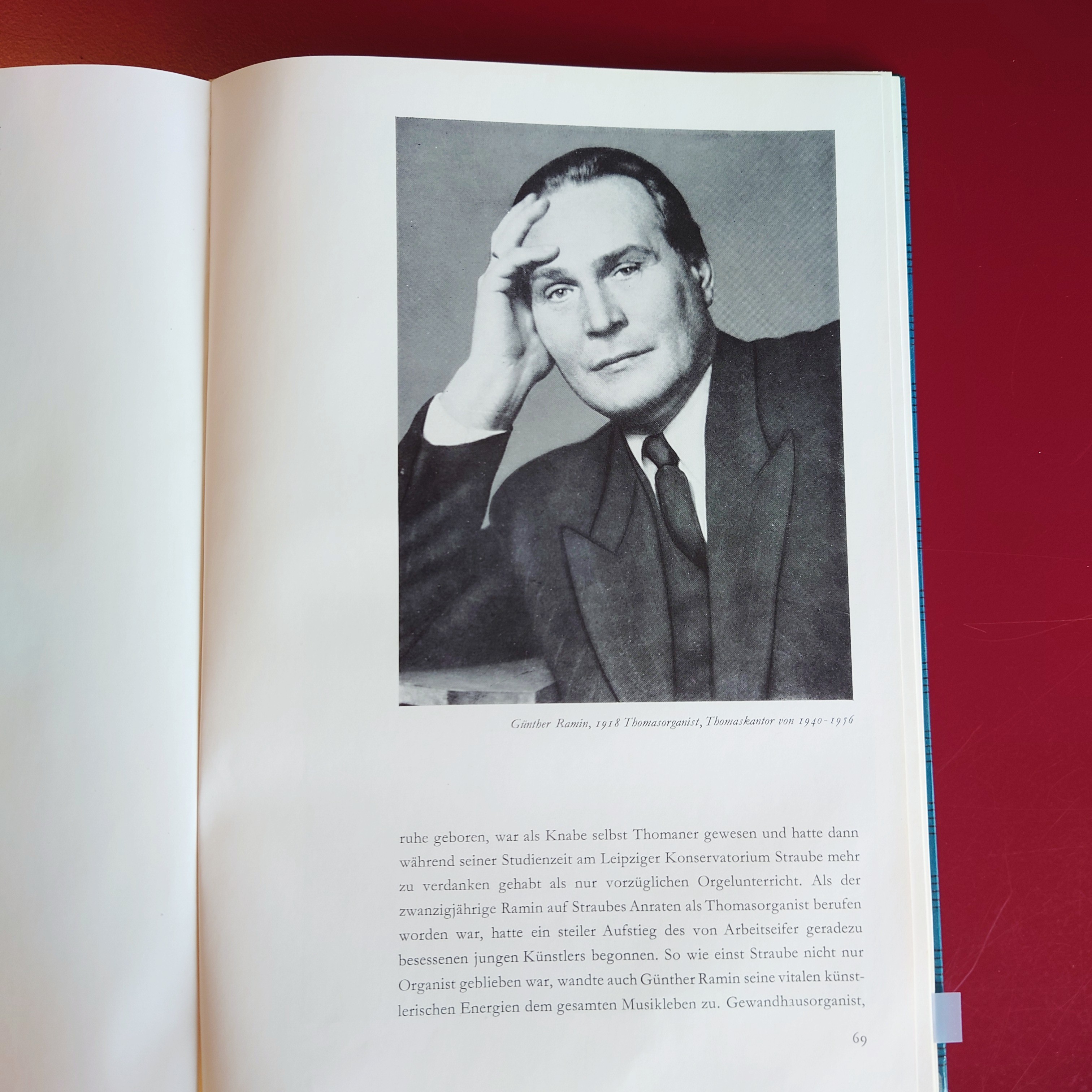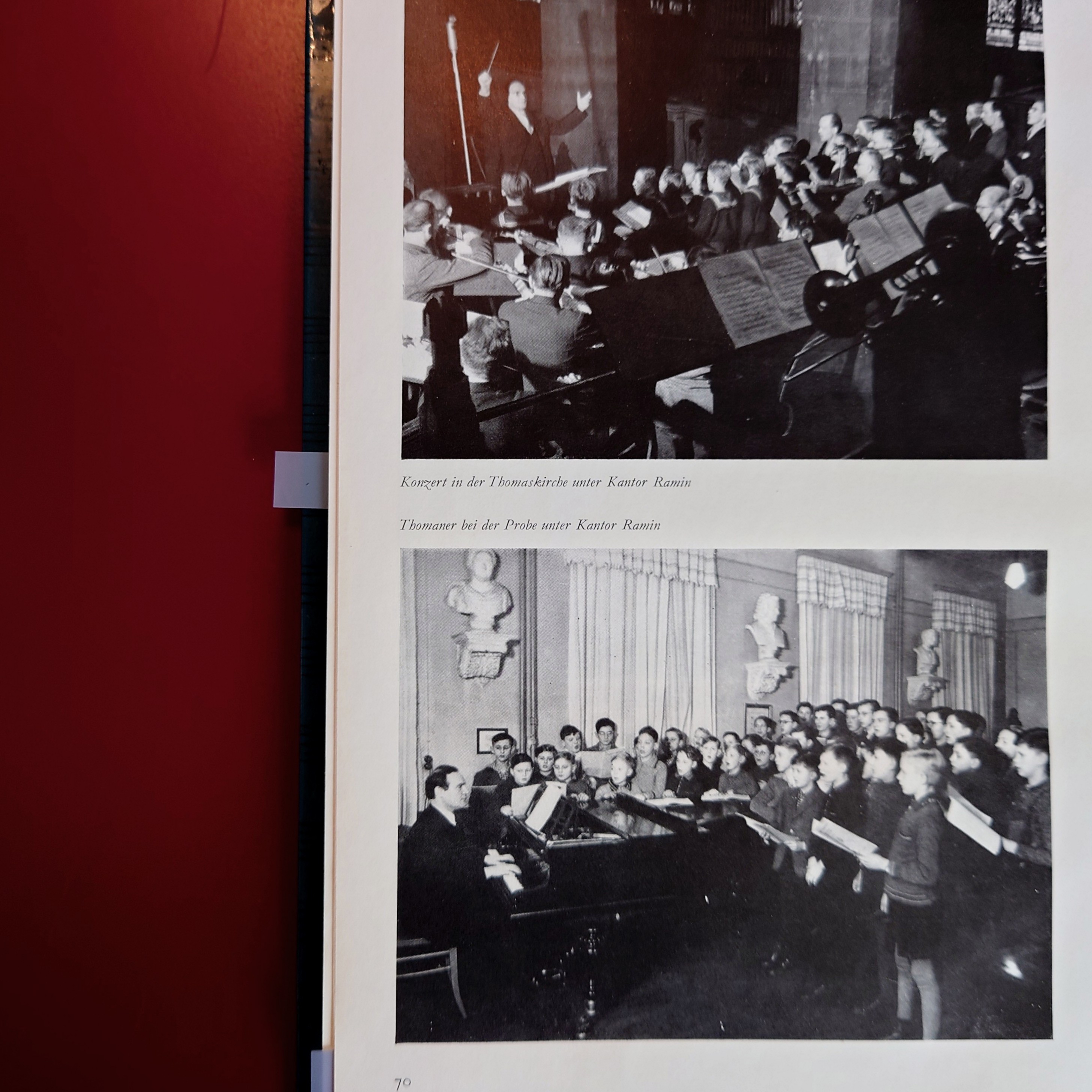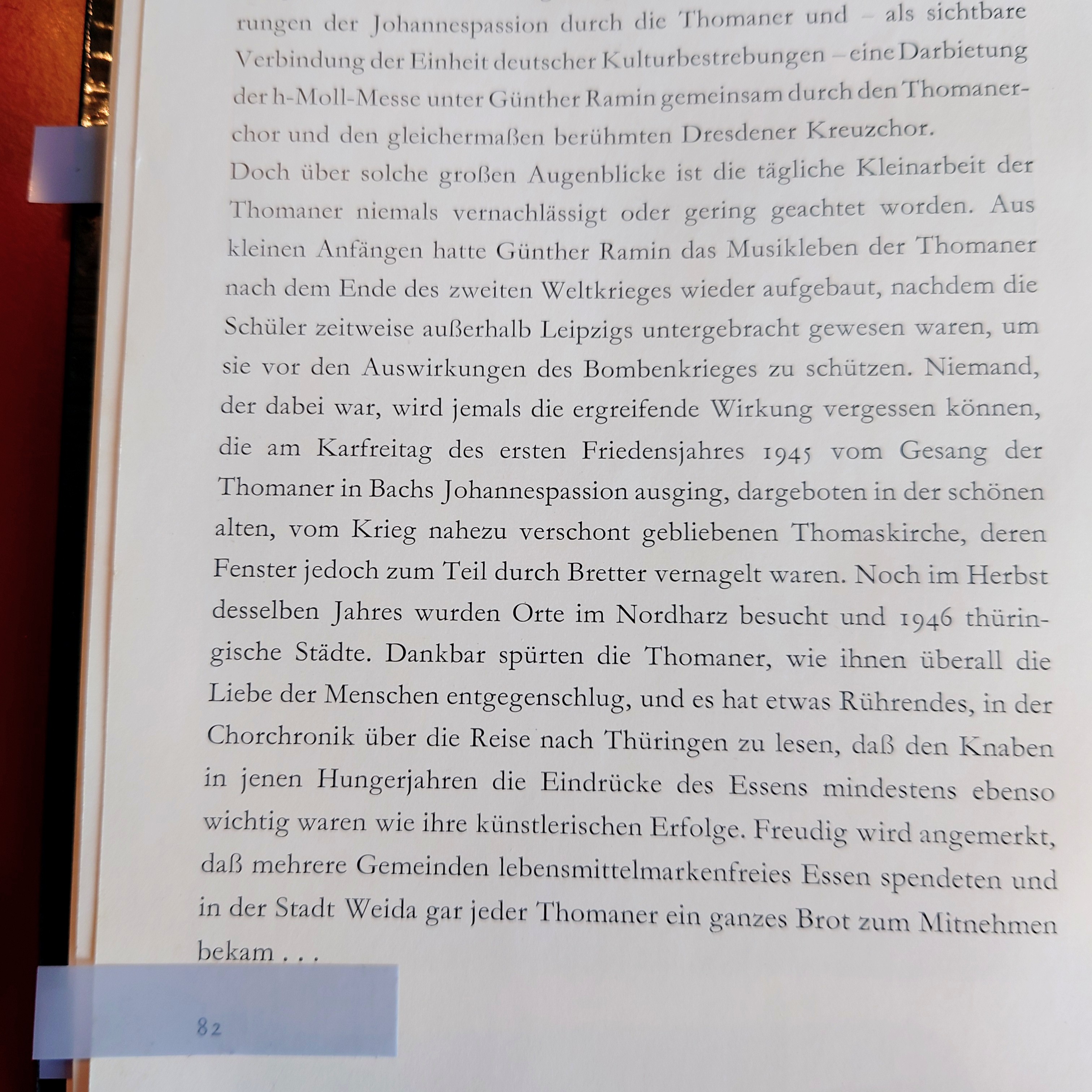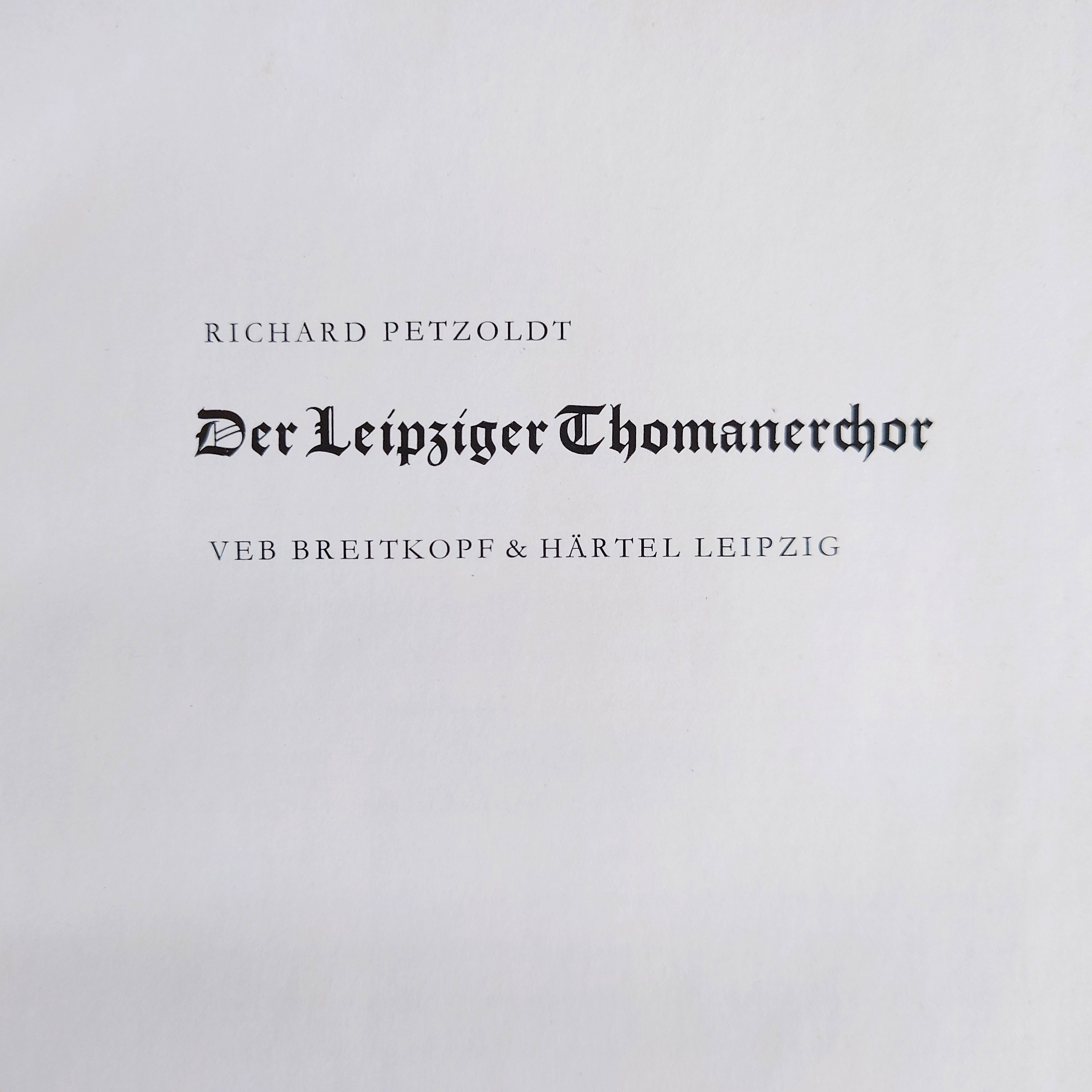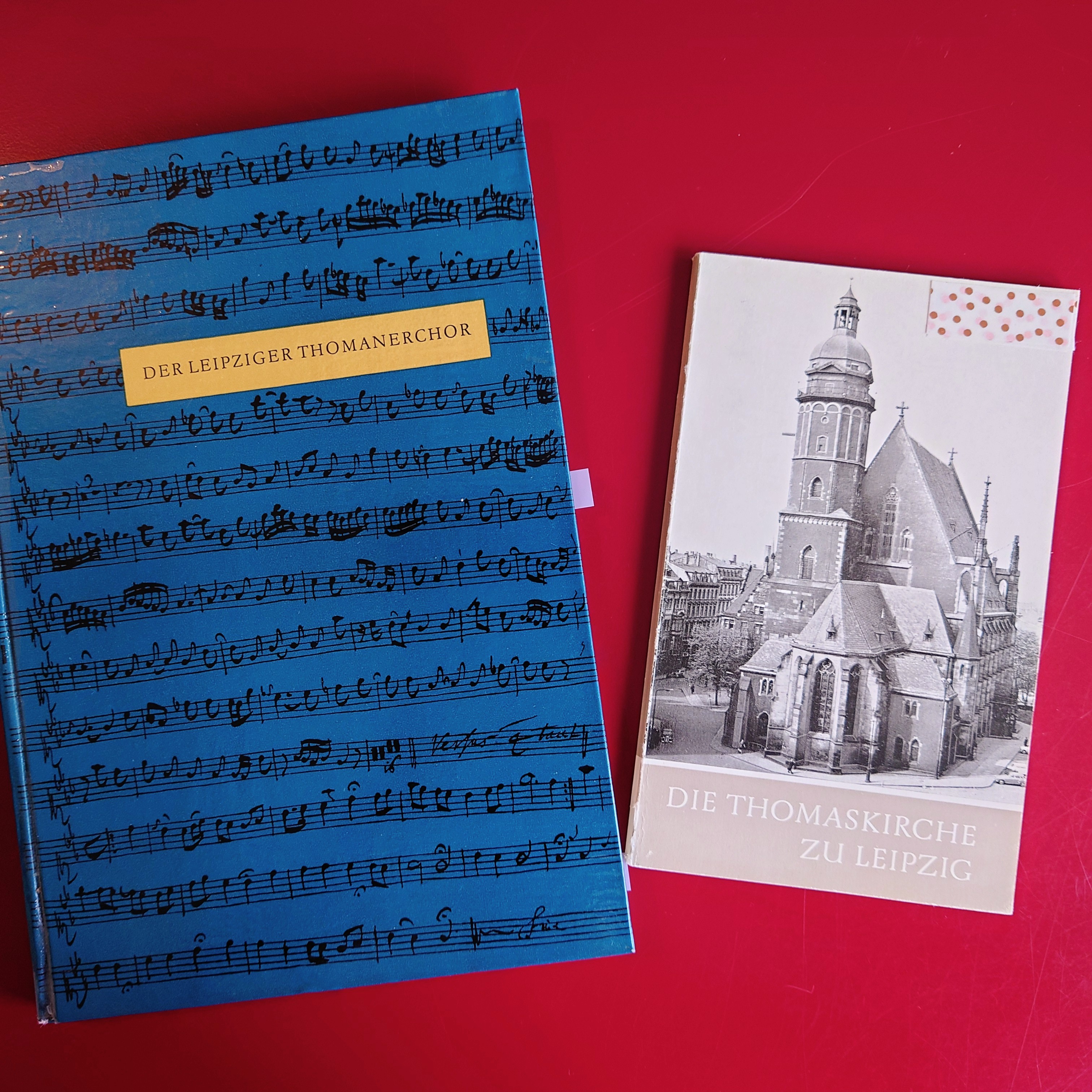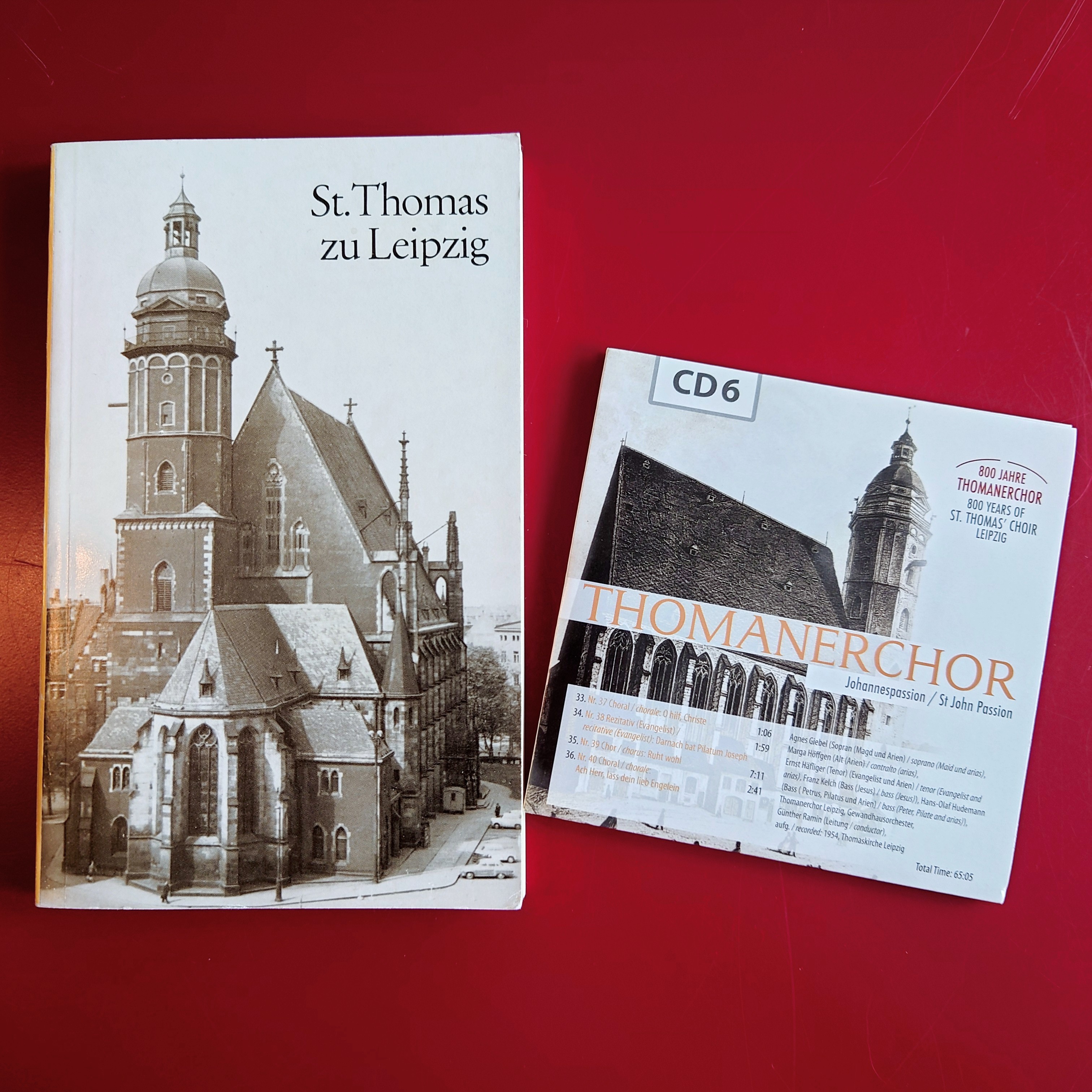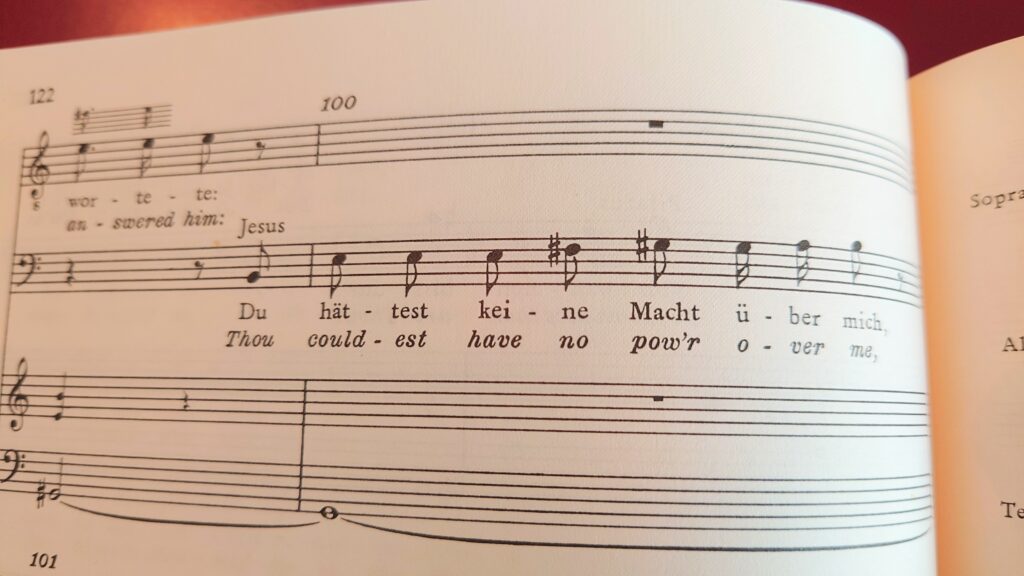
“No one who was there will ever be able to forget the poignant effect of the St. Thomas Boys Choir singing Bach’s St John Passion on Good Friday in 1945, the first year of peace, performed in the beautiful old St Thomas Church, which had been largely spared from the war, but the windows were partially panelled.”
“Niemand, der dabei war, wird jemals die ergreifende Wirkung vergessen können, die am Karfreitag des ersten Friedensjahres 1945 vom Gesang der Thomaner in Bachs Johannespassion ausging, dargeboten in der schönen alten, vom Krieg nahezu verschont gebliebenen Thomaskirche, deren Fenster jedoch zum Teil durch Bretter vernagelt waren.”
– Richard Petzoldt, Der Leipziger Thomanerchor.”
The Thomanerchor (St. Thomas Choir of Leipzig) was founded in the year 1212, it has more than 800 years of tradition. Their most ever famous music director was J.S. Bach (1685 – 1750). He wrote cantate for each Sunday for the choir to sing, also the oratorios for Good Friday, Christmas and Easter. After his death, the choir was still singing his compositions, however, it was not until Felix Mendelssohn Bartholdy (1809-1847) conducted the St Matthew Passion on 11.03.1829 that J.S. Bach’s music is in unstoppable trend again until today.
Nevertheless, the continuity of the choir was not without challenges. One of the major challenges it faced was during the second world war. Who decided what to sing? During the Nazi era, the cultural scene was horrible. They burned books that not suitable to their ideology, they changed the lyrics of Robert Schumann’s Dichterliebe (A Poet’s Love) and kept the music because the lyrics was written by Jewish poet Heinrich Heine and so on. In this sense, religious text in Bach’s music was not in the favour of Nazi too, moreover, Jesus the saviour was a Jew.
I think, human are designated to do certain things on this earth, for the very specific time and place. There is not really such thing like if only the time is better nor where one has been born. One is here now for a time like this to do the work assigned from above. The music director Günther Ramin (1898-1956) stepped into this vocation as Thomaskantor in the year 1940 and skilfully led the Thomanerchor through this critical time.
“During the Nazi era, the choir was incorporated into the Hitler Jugend in 1937. But the Nazi government did not succeed in infiltrating their ideology into the choir’s repertoire because the then director Günther Ramin concentrated on religious works. He also tried to prevent the boys from being enlisted in the military as long as possible.” – From “Thomanerchor” Wikipedia
The musical training was interrupted during the war, after the war, Ramin speedily restored the quality and the choir gained more international reputations afterward. The choir played a pivotal role in the reconciliation with other countries after the war. The first Good Friday after the war in year 1945, Ramin conducted the choir presenting J.S. Bach’ St. John Passion in the war torn Leipzig, in the St. Thomas church with boards nailed windows. The music was reportedly emotionally overwhelmed and unforgettable.
There is one recitative in St. John Passion (BWV 245 No. 21g) reminds me of “power” and “authority”. Ramin did play organ for the Nazi politician Hermann Göring’s wedding (1935), he appeared soft at the beginning, yet there was a clear line for him not to cross. Did he not know that his life is at risk by not cooperating with the Nazi’s cultural programme?
I quote the recitative:
So Pilate said to him, “You will not speak to me? Do you not know that I have authority to release you and authority to crucify you?”
Jesus answered him, “You would have no authority over me at all unless it had been given you from above.” – John 19:11
Jesus knew, which power ultimately governs him. Clearly, not Pilate’s. This knowledge enabled him to fulfilled the passion, to die, conquered the death and raised again.
There are many things or governments or negative emotions / thoughts that claimed to have “power” over me. When I think carefully, do they really have the “authority”? To which “authority” I should bow down? And whose power is governing my heart?
Listen to the recitative in St. John Passion BWV 245 No. 21g
So Pilate said to him, “You will not speak to me? Do you not know that I have authority to release you and authority to crucify you?”
Jesus answered him, “You would have no authority over me at all unless it had been given you from above.”
– John 19:11
Note:
If you like my blog post, you can show your appreciation by making a donation at:
https://ko-fi.com/thejourneywriter
The donation goes to website maintenance fee, I thank you in advance.
